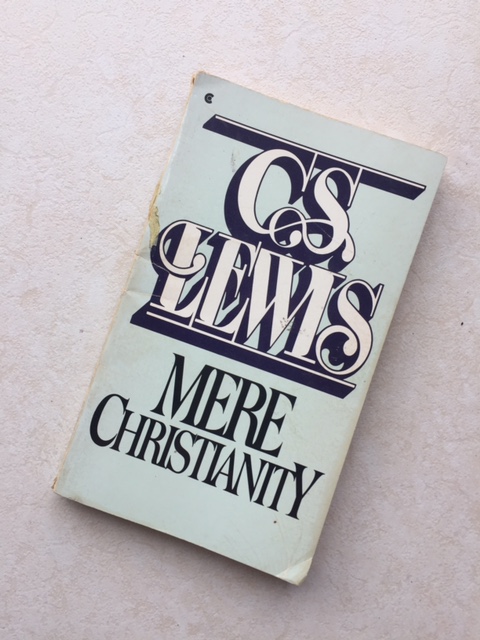Recently a young person asked me to recommend a book to give to a friend who has no church background but is concerned about mortality. Of course, the Bible is the best recommendation, especially one of the gospels like Mark or John. Having been working mostly in Spanish for the last three decades, I asked some friends for nominations in English, one of which was C.S. Lewis’ Mere Christianity. As a fairly new Christian, I read this book in college and decided to read it again and offer a brief review.
Book I is the best of the four as it exposes humans as inevitably attached to the concepts of right and wrong and largely coinciding on a moral code. In the light of this attachment, Lewis introduced the idea of law and postulated a Lawgiver. Essentially his argument is the classical moral argument for the existence of God, developed with keen insights about humans and in a compelling manner. However, unlike in some presentations of the moral argument, he did not try to bootstrap himself up to the Christian doctrine of God. He went to the Bible and the creeds for that.
Book II presents Christian beliefs in a slightly quirky form. In post-war England, many people respected Jesus as a great moral teacher, whose teaching, if followed would help produce better societies and avoid future wars. Of course it would, but that’s not the main point of his ministry. Here Lewis presented his now famous trichotomy, trying to force people to label Jesus as a liar, a lunatic, or the Lord. Striving to be non-partisan, he avoided siding with a particular view of the atonement, but he did emphasize some vicarious aspects of Jesus’ work, particularly his active obedience to God’s law in our place. By not being so clear on the nature of the atonement, he was fuzzy on the doctrine of justification and the role of faith as the “alone instrument of justification” (as the Westminster Confession of Faith puts it in chapter XI).
Book III is about Christian ethics and is both dated and prescient. He assumed a general knowledge and acceptance of Christian morality, a consensus that is not so reliable today. However, his defense of biblical sexual norms is more necessary today than it was in his. Lewis organized around the seven virtues, dividing them into four cardinal and three theological virtues. Without soft-pedaling it, he presented Christian behavior as the most attractive and ultimately the happiest option available.
In Book IV, Lewis delved into theology, especially the doctrine of the Trinity. He began with a defense of theology as the tried and true road map to reality, which goes beyond personal religious experience. The Trinity is not only difficult conceptually but necessary for it to be true that God always is love. Also, the Trinity is what believers intuitively experience as we pray to God (the Father) and perceive that God (the Son) is with us in our humanity and that God (the Holy Spirit) is in us.
There are some blemishes in the book. In addition to the lack of clarity about justification by faith alone, another way in which Lewis muddied the water was by granting some level of Christianity to the noble pagans of ancient Greece and to sincere adherents other world religions. (Remember the Calormene warrior who found himself in the real Narnia in The Last Battle.) He also occasionally stooped to the level of abuse in his arguments, calling ideas “silly” and questioning opponent’s intelligence or maturity. Lewis also had a tendency to refer to the Bible too little and too much, too little by building his arguments more on the creeds than on biblical texts, and too much by referring to (without clearly identifying) biblical texts that he assumed everyone would already know. Occasionally his Briticisms are puzzling but can usually be understood in context.
On the positive side, Lewis was a master of the simile, taking abstruse ideas and showing how they are very much like concepts that we already have and readily affirm. He wove astute observations about history, psychology, society, and theology into a devastating critique of secularism and a compelling defense of the Christian faith. His forthright call to faith in Christ and commitment to following him is refreshing.
Therefore, in answer to the person who asked me for a recommended book for a friend, while I need to learn more about more recent offerings, Mere Christianity is still a very good option. You might want to read it for the first time or again. I’m glad I did.





